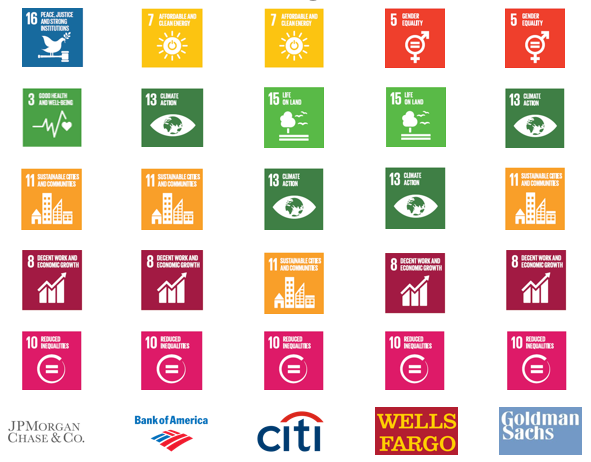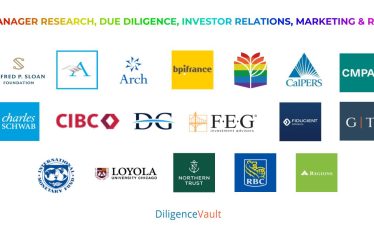As (one of) the millennial(s) on the team, it is only natural I write an article on Environmental, Social, and Governance (ESG). Also from the perspective of a technology platform digitizing and centralizing manager research, diligence and evaluation, we’ve seen that ESG questionnaires, Socially Responsible Investing (SRI) themed surveys, diversity questionnaires, and impact investment research interests have become important to many of our clients. A quick Google search suggests my generation may have spearheaded some of the ESG interest as of late (post-crisis), but SRI has been around for centuries. Looking at a nifty timeline from Verus, religious organizations have been screening investment decisions for “sin stocks” since the 1700’s. In 1971, the Pax World Fund, which is considered to be the first SRI mutual fund, promoted the avoidance of weapon contractors engaging with investors opposed to militarism. Further confirming the trend in 2015, the Department of Labor published Interpretive Bulletin (IB) 2015-01 which confirmed consistency with respect to economically targeted investments (ETI) and ESG for primary fiduciary duty (Verus).
When looking at Sustainable Investing from an aerial view, according to a report by BlackRock, “Client motivations often fall into one of two categories: Avoid and Advance.” SRI has typically involved negative screening or an avoidance based on criteria. ESG, Thematic and Impact investing falls into the advance category, or the alignment of capital with certain behaviors, activities or outcomes. As the industry is increasingly focused on aligning capital with meaningful interests, evaluating and reporting has become more important than ever. This initiated my curiosity in understanding the next wave of ESG related interests.
Below is a graphic from Verus of the United Nations’ Sustainable Development Goals mapped against the ESG categories:
ESG Today
According to the UN, the 17 Sustainable Development Goals (SDGs), “… are an urgent call for action by all countries – developed and developing – in a global partnership. They recognize that ending poverty and other deprivations must go hand-in-hand with strategies that improve health and education, reduce inequality, and spur economic growth – all while tackling climate change and working to preserve our oceans and forests.” I thought this would be an interesting baseline by which to compare the industry’s ESG initiatives. I studied sustainability reports from several US financial institutions and summarized them categorically based off these SDGs. It should be noted, as all these institutions work to implement nearly every initiative into their company’s ESG philosophy, I am choosing the few which project to be a priority. This is only a summary and by no means attempts to encapsulate every initiative these institutions are working to achieve in the area of ESG.
Figure 2: SDGs Present in Company Sustainability/ESG Reports
It wasn’t a surprise to find Climate Action, Affordable and Clean Energy, and Life on Land present somewhere in these reports but I wanted to highlight each of the top five topics emphasized. Reduced Inequalities shows up in all firm’s priority lists while a couple also explicitly discuss Gender Equality. As DiligenceVault is on the frontlines supporting some of the largest allocators researching their managers for these topics, I knew diversity had become very important for asset owners, and these reports would agree with this acknowledgement. Sustainable Cities and Communities aligned exceptionally well with a few of the companies’ outlook. Call it the millennial in me but I found this to be delightful as the UN defines this topic as “…making cities and human settlements inclusive, safe, resilient and sustainable.”
The Future of ESG in Investment Management
So, what does this all mean for our business/industry? More and more asset owners, who have significant sway in inspiring action, have been integrating these factors into their investment theses. According to Principles for Responsible Investment (PRI), there are more than $89 billion assets represented as PRI Signatories in 2018. Looking at a Morgan Stanley report, from May 2018, 84% of asset owners are either already integrating ESG criteria or actively considering it within their processes. What’s more, 60% of the asset owners who’ve allocated towards ESG have started doing so in the last four years. ESG investing is driven by a range of motivations including:
1. Risk Management
2. Return Potential
3. Mission Alignment
4. Evolving Policies and Regulations
5. Constituent and Stakeholder Demand
Climate change-based investing is the leading investment theme as of late, encompassing the aforementioned motivations. Good thing, as the implications of climate change are systemic, but an investment plan that supports transition also results in return potential. The world’s climate is already, on average, 1°C warmer than in pre-industrial times and investors need to consider both climate-related mitigation and adaptation in an active way to develop climate resilience in their portfolios. – Mercer Report
When working with both asset owners and asset managers through our own technological lens, we aim to be consultative in nature to all the industry’s new and noteworthy trends, behaviors, and priorities. We are excited to be assisting asset allocators, consultants and fund managers in systematically structuring data to impact sustainable change and understand just a little bit more about their world; it is all our world after all.
As a wise person once said, “If we have the ability to drive change, we have the responsibility.”
ESG/Sustainability Reports:
JP Morgan Chase & Co, Environmental Social & Governance Report. 2018
Bank of America Corporation, Environmental, Social & Governance Update. 2017
Citi, Global Citizenship Report. 2017
Wells Fargo & Company, Corporate Social Responsibility Report. 2017
Goldman Sachs 2018 Sustainability Report. Capital with Purpose: The Future of Sustainable Finance



